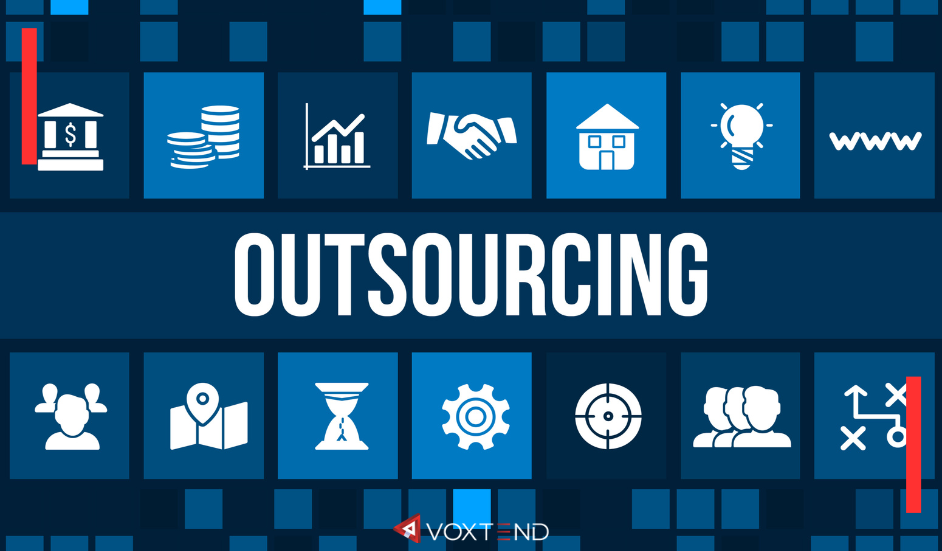In today’s fast-paced and globalized business environment, outsourcing has become a prevalent strategy for companies seeking to enhance efficiency, reduce costs, and gain competitive advantages. As the global economy continues to evolve, the importance of outsourcing as a strategic business practice is likely to grow. Companies that effectively harness the benefits of outsourcing can position themselves for sustained growth and competitiveness, navigating the complexities of the modern marketplace with agility and resilience. This article explores the reasons why companies choose to outsource work, examining the benefits and strategic motivations behind this significant business practice.
Cost Reduction
One of the primary reasons companies choose to outsource work is cost reduction. By outsourcing, companies can advantage of lower labor costs in countries with cheaper workforces. This is particularly relevant for labor-intensive tasks such as manufacturing, customer service, and IT support. The disparity in wages between developed and developing countries enables companies to maintain or even improve service quality while significantly reducing expenses.
For example, an American company might outsource its customer service operations to India or the Philippines, where the cost of labor is considerably lower. This allows the company to allocate financial resources more efficiently, investing savings into other critical areas such as research and development or marketing. Additionally, outsourcing eliminates the need for substantial investments in infrastructure and technology, as the outsourced vendor typically provides these resources.
Access to Specialized Expertise
Outsourcing also grants companies access to specialized expertise that may not be available internally. Many outsourcing providers have developed niche competencies in specific areas, offering advanced skills and technologies that can enhance a company’s operations. For instance, an organization looking to develop a sophisticated software application may lack the in-house expertise to do so. By outsourcing to a firm that specializes in software development, the company can leverage the provider’s advanced technical skills and experience, ensuring a high-quality product.
Technical fields are not the only areas where companies can access specialized knowledge. Companies can also outsource functions such as legal services, human resources, and financial management to firms that possess deep industry knowledge and best practices. This enables the outsourcing company to benefit from cutting-edge expertise without the need to hire and train new employees, which can be time-consuming and costly.
Focus on Core Business Activities
Outsourcing allows companies to concentrate on their core business activities, thereby enhancing overall efficiency and effectiveness. By delegating non-core functions to external providers, businesses can free up internal resources and focus on what they do best. For example, a company whose primary strength lies in product design might choose to outsource its manufacturing operations. This allows the company to dedicate more time and resources to innovation and design, potentially leading to the creation of superior products that drive competitive advantage.
Focusing on core competencies also facilitates better strategic planning and execution. Senior management can allocate more attention to critical business areas such as market expansion, customer relationship management, and strategic partnerships. Outsourcing non-essential tasks ensures that these vital aspects receive the necessary focus and investment, ultimately contributing to the company’s long-term success.
Increased Flexibility and Scalability
Outsourcing offers companies increased flexibility and scalability, enabling them to respond more effectively to changing market conditions and demands. This is particularly important in industries characterized by rapid technological advancements and fluctuating consumer preferences. By outsourcing, companies can scale operations up or down quickly without the constraints associated with hiring or laying off employees.
For instance, a company experiencing seasonal demand fluctuations can outsource its customer service operations to a provider capable of adjusting staffing levels in response to peak periods. This flexibility allows the company to maintain high service standards without incurring the fixed costs associated with maintaining a large, permanent workforce. Additionally, outsourcing can facilitate faster time-to-market for new products and services, as external providers often have the resources and expertise to expedite development processes.
Risk Management
Outsourcing can also be an effective risk management strategy. By distributing certain business functions to external providers, companies can mitigate risks associated with operational disruptions, such as those caused by natural disasters, political instability, or economic downturns. For example, a company that outsources its IT operations to a provider with data centers in multiple geographic locations can ensure business continuity even if one data center experiences an outage.
Furthermore, outsourcing can help companies manage compliance and regulatory risks. External providers often have a thorough understanding of industry regulations and standards, ensuring that outsourced functions are performed in compliance with legal requirements. This is particularly important in highly regulated industries such as healthcare, finance, and pharmaceuticals, where non-compliance can result in severe penalties and reputational damage.
Access to Advanced Technology
Outsourcing enables companies to access advanced technology and innovative solutions without the need for significant capital investment. Many outsourcing providers invest heavily in state-of-the-art technology to stay competitive and offer their clients the best possible services. By outsourcing, companies can leverage these technological advancements to improve their operations and gain a competitive edge.
For instance, a company might outsource its data analytics functions to a provider with advanced analytics platforms and tools. This enables the company to gain valuable insights from its data, driving better decision-making and strategic planning. Similarly, outsourcing IT services can provide companies with access to cutting-edge cybersecurity measures, ensuring the protection of sensitive information and reducing the risk of data breaches.
Improved Service Quality
Outsourcing can lead to improved service quality and performance outcomes. External providers are often highly motivated to deliver exceptional service to retain their clients and secure long-term contracts. This can result in higher service levels, faster response times, and better overall performance compared to in-house operations.
Additionally, outsourcing providers typically implement rigorous quality control measures and performance metrics to ensure service excellence. These measures can lead to continuous improvement and innovation, benefiting the outsourcing company. For example, a business that outsources its customer service operations may experience higher customer satisfaction levels due to the provider’s focus on quality and efficiency.
Global Market Expansion
Outsourcing can facilitate global market expansion by providing companies with the resources and capabilities needed to enter and operate in new markets. This is particularly important for businesses looking to establish a presence in regions with different languages, cultures, and regulatory environments. By partnering with local outsourcing providers, companies can navigate these complexities more effectively and tap into new customer bases.
For instance, a company seeking to expand its operations into Asia might outsource its market research and localization efforts to a provider with extensive knowledge of the region. This enables the company to gain insights into local consumer preferences, regulatory requirements, and competitive dynamics, facilitating smoother market entry and reducing the risk of costly missteps.
Enhanced Competitive Advantage
Outsourcing can enhance a company’s competitive advantage by enabling it to focus on strategic initiatives and differentiate itself from competitors. By leveraging the expertise, technology, and resources of outsourcing providers, companies can develop innovative products and services, improve operational efficiency, and deliver superior customer experiences.
For example, a company that outsources its supply chain management to a provider with advanced logistics capabilities can streamline its operations and reduce lead times. This can result in faster delivery times and higher customer satisfaction, providing a competitive edge in the market. Similarly, outsourcing research and development functions can accelerate the innovation process, allowing companies to bring new products to market more quickly and stay ahead of competitors.
Strategic Partnerships and Collaboration
Outsourcing often leads to the formation of strategic partnerships and collaborative relationships between companies and their providers. These partnerships can drive mutual growth and innovation, benefiting both parties. For instance, an outsourcing provider might share industry insights, best practices, and new technologies with its clients, helping them stay competitive and adapt to changing market conditions.
Moreover, strategic partnerships can result in co-development initiatives, where both the company and the provider work together to create new products, services, or solutions. This collaborative approach can lead to faster innovation, improved service delivery, and enhanced value for customers.
Final Thoughts
In conclusion, companies choose to outsource work for a multitude of reasons, ranging from cost reduction and access to specialized expertise to improved service quality and enhanced competitive advantage. Outsourcing allows businesses to focus on their core activities, increase flexibility and scalability, manage risks, and leverage advanced technology. By forming strategic partnerships and collaborating with outsourcing providers, companies can drive innovation and achieve long-term success in today’s dynamic business environment.
Call-To-Action
Regardless of the size of the business you represent, if you’re considering outsourcing your work to trusted experts, VoxtenD is here to help. Our suite of tech services covers all aspects of outsourcing and beyond, ensuring that your business gets the help it needs, no matter the size or needs of your business. With round-the-clock availability, VoxtenD is your partner in achieving business success. Contact us today to explore how our services can benefit your business.





